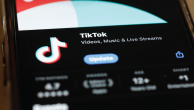Journalists at national and local news organizations are notably different from the general public in their ideology and attitudes toward political and social issues. Most national and local journalists, as well as a plurality of Americans (41%), describe themselves as political moderates. But news people especially national journalists are more liberal, and far less conservative, than the general public.

About a third of national journalists (34%) and somewhat fewer local journalists (23%) describe themselves as liberals; that compares with 19% of the public in a May survey conducted by the Pew Research Center. Moreover, there is a relatively small number of conservatives at national and local news organizations. Just 7% of national news people and 12% of local journalists describe themselves as conservatives, compared with a third of all Americans.
In this regard, Internet journalists are similar ideologically to local journalists: 57% describe themselves as moderates, while 27% say they are liberals and 13% conservatives. Local TV and radio journalists include the lowest percentage of liberals of any of the journalist groups surveyed (15%). Even among local TV and radio journalists, however, just 13% describe themselves as conservatives.
Major Differences: God and Morality, Homosexuality
The 1995 survey of journalists found particularly sharp differences between journalists and the public when it came to attitudes toward morality and homosexuality. A solid majority of Americans consistently have expressed the opinion that it is necessary to believe in God to be a moral person. Nearly six-in-ten (58%) expressed that view in a 2002 Pew Research Center survey, while 40% said that belief in God is not a prerequisite for morality. Journalists, regardless of their organization and position, take a decidedly different view. Fully 91% of those who work at national news organizations say it is not necessary to believe in God to be moral; 78% of local journalists agree.

As was the case in 1995, journalists are much more accepting of homosexuality than is the general public. Overwhelming majorities of national (88%) and local (74%) say homosexuality should be accepted by society. Only about half of the public agrees (51%).
Since the mid-1990s, however, public support has increased for societal acceptance of homosexuality, while journalists’ attitudes have been more stable. In a 1993 Times-Mirror survey, most Americans (53%) said homosexuality should be discouraged; today a narrow majority (51%) believes homosexuality should be accepted. National journalists also have become slightly more accepting of homosexuality since 1995 (83% then, 88% today), while local journalists’ views have been stable (75% then, 74% today).
More Agreement on Safety Net

There is more common ground between news professionals and the public in attitudes toward individual freedom and government assistance for needy people. Identical majorities of local journalists (58%) and the public (58%) say it is more important that Americans be free to pursue their goals without government interference, than that government guarantee that no one is in need.
National journalists are divided over this question 49% place higher priority on freedom from government interference while 42% say it is more important that the government play an active role to guarantee aid to the needy. Opinion among Internet journalists divides along similar lines: 51% believe freedom from government interference is more important; 43% say a government guarantee of aid for the needy is more important.
Conservative Journalists Secular Too
There is a broad consensus among news professionals, regardless of their ideology, that it is not necessary to believe in God to be moral. But other issues - homosexuality and the government’s role in aiding the needy - produce wider fissures along ideological lines.

Journalists who identify themselves as liberals are virtually unanimous in their view that homosexuality should be accepted by society (95% agree). More than eight-in-ten moderates (84%) agree. But only about half of conservatives (49%) say homosexuality should be accepted.
The news people surveyed also are deeply divided over the question of whether individual freedom, or government aid to the needy, is more important. Liberals by a wide margin (61%-33%) place greater priority on government guarantees of aid for the needy. By contrast, conservatives overwhelmingly say it is more important that everyone be free to pursue life’s goals (88%); just 9% feel it is more important for government to guarantee that no one is in need.




